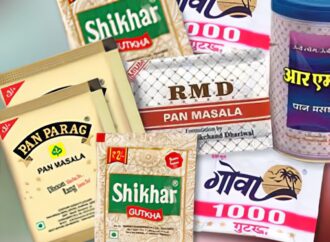 Food Manifest
Food Manifest
The house of resource for food safety.
Blog 1 Column Left Sidebar
- Home
- Blog 1 Column Left Sidebar
Latest Posts
-

-

-

-

-

FSSAI Extends Deadline for Meat Sausage Standards
- A to Z, Food Hygiene, Food Safety, News
- February 10, 2026

Health Concerns Push U.S. to Regulate Restaurant Additives0
- A to Z, Food Hygiene, Food Safety, Resources
- July 3, 2025
Overview For years, research reports have highlighted the presence of harmful substances and additives in food items served at restaurants in the U.S. However, it’s often only when a consumer files a lawsuit against a restaurant chain that courts take action. A notable example is the discontinuation of pork fat in French fries. Still, most
READ MORE
Health Authorities Conclude Investigation into E. coli Outbreak Linked to McDonald’s0
- Food Laws, Food Safety, News
- December 4, 2024
FDA Confirms Source of Contamination Health authorities concluded their investigation into an E. coli outbreak linked to raw slivered onions in McDonald’s Quarter Pounder burgers. The Food and Drug Administration (FDA) confirmed that the outbreak affected 104 individuals across 14 states, leading to 34 hospitalizations and one fatality in Colorado. Investigators identified the contaminated onions
READ MORE
Health Alert: 12 Hospitalized Due to Suspected Food Poisoning After Consuming Chicken Shawarma in Goregaon0
- Food Hygiene, Food Safety, News
- April 29, 2024
In a concerning incident, 12 individuals have been hospitalized due to suspected food poisoning after consuming chicken shawarma from a popular eatery in Goregaon, Mumbai. The incident has raised alarms about food safety standards and the importance of vigilant consumption.
READ MORE
HC directs Union, state govts to take strict action aganist food adulteration0
- A to Z, Food Hygiene, Food Laws, Food Safety, News
- July 2, 2024
Strict action aganist Food Adulteration.
READ MORE
Haryana Urged to Tackle Food Adulteration, Fill Safety Officer Vacancies0
- A to Z, Food Hygiene, Food Safety, News
- January 23, 2025
Report The Punjab and Haryana High Court has instructed the Haryana government to decide within 60 days regarding changes to laws aimed at tackling milk adulteration with harmful substances. This decision follows a request for legal amendments to address health concerns related to food adulteration. Court Highlights Unfilled Vacancies in Food Safety Department In addition
READ MORE
Haryana Bans Gutka and Pan Masala for One Year0
- A to Z, Food Hygiene, Food Safety, Health & Wellness, News
- September 19, 2025
Key Update The Food and Drugs Administration in Haryana has banned the manufacture, storage, distribution, and sale of gutka, pan masala, flavoured tobacco, kharra, and similar products across the state for one year. Food Safety Commissioner Manoj Kumar issued the order this month, citing growing evidence of the severe health hazards caused by these products.
READ MORE




